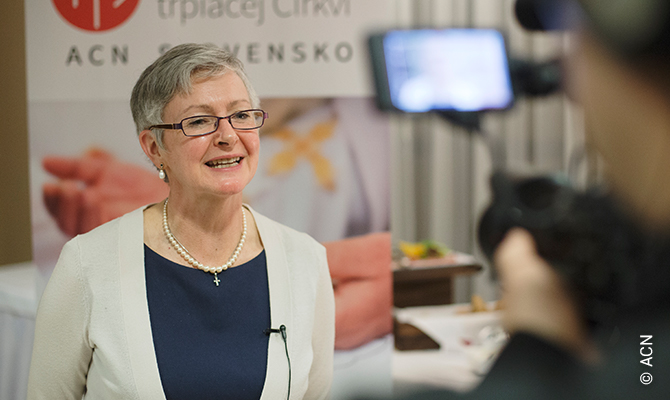“The situation in northern Ethiopia is alarming. Communication is very precarious and for almost three weeks the region has been totally isolated from the rest of the world. No internet or telephone. But the news we get from those who have been able to visit the area is terrible,” says Regina Lynch, project manager for the international foundation Aid to the Church in Need (ACN).
The Tigray region, whose capital is Mekele, is the most northern region of Ethiopia and borders Eritrea and Sudan. About 95% of the population are Christians of the Ethiopian Coptic Orthodox Church and belong to the Tigray ethnic group.
“Hundreds of citizens are being killed in the conflicts in the Tigray region. Nobody knows for sure the number of dead, but we have been told that there are priests and church leaders among them. Shops, schools, churches and convents have been robbed and destroyed. Thousands of people have fled their homes. Many have crossed the border into Sudan, but others have sought refuge in remote areas, in the mountains, without water or access to food,” confirms Regina Lynch.
With regard to the news that has spread in recent days in many media outlets about the possible murder of 750 people in an assault on the Orthodox Church of St Mary of Zion (Maryam Tsiyon) in Aksum last November, where according to the local tradition the Ark of the Covenant is kept, Lynch acknowledges that “we have not been able to verify the exact details of what would be a real massacre. Travel in the region is not currently possible and communications are very restricted, but we have received confirmation of a series of killings and attacks on innocent people in many parts of the region and also in the Aksum area. The population is terrified,” says Regina Lynch.

According to information received by ACN, there could have been another massacre with over a hundred victims in the church of Maryam Dengelat in December.
Although the conflict has led to the deaths of hundreds of Christians, the sources reiterate that the violence is not motivated by religion but by political conflict: due to the COVID19 pandemic the parliamentary elections planned for 29 August 2020 were postponed until after the pandemic, but the nationalist party People’s Front for the Liberation of Tigray (PFLT) independently organized, and without the permission of the national government, regional elections in the region of Tigray in early September, which created a political crisis that led to military intervention.
Last November fighting broke out in the northern region after the Ethiopian prime minister, Abiy Ahmed, sent to the region federal troops, who were reportedly joined by Eritrean troops, to fight against the People’s Liberation Front of Tigray (PFLT).
This has been confirmed by another source contacted by ACN, who wishes to remain anonymous for fear of reprisals: “Frankly, the problem is that the Eritrean troops have been involved from the beginning. The government has denied this, but it is the Eritrean troops who commit killings in the east and northwest of Tigray.”
“It is almost impossible to confirm the figures, but we have received information of people killed by the Eritrean troops in Irob, in Zalambassa and in Sebeya. I have also heard of dozens of people, including priests, killed in a church in Gietelo, Gulemakada,” the same source explains.
The isolation of the region makes it very difficult to send aid, explains the ACN Foundation’s project manager, while asking for support for Ethiopia and especially for the region of Tigray: “It is a political problem, but those who are paying with their lives are the citizens and civilians. This is a terrible situation. The suffering of so many people must be alleviated, and comfort must be given to our Christian brothers and sisters who are isolated from the world in a situation of anguish, threatened by violence and terror”.
“At the moment it is almost impossible to access information, but we are looking for solutions to see how to support the local church. In the meantime we ask everyone to join in prayer for this country, its church and its people,” says Lynch.
